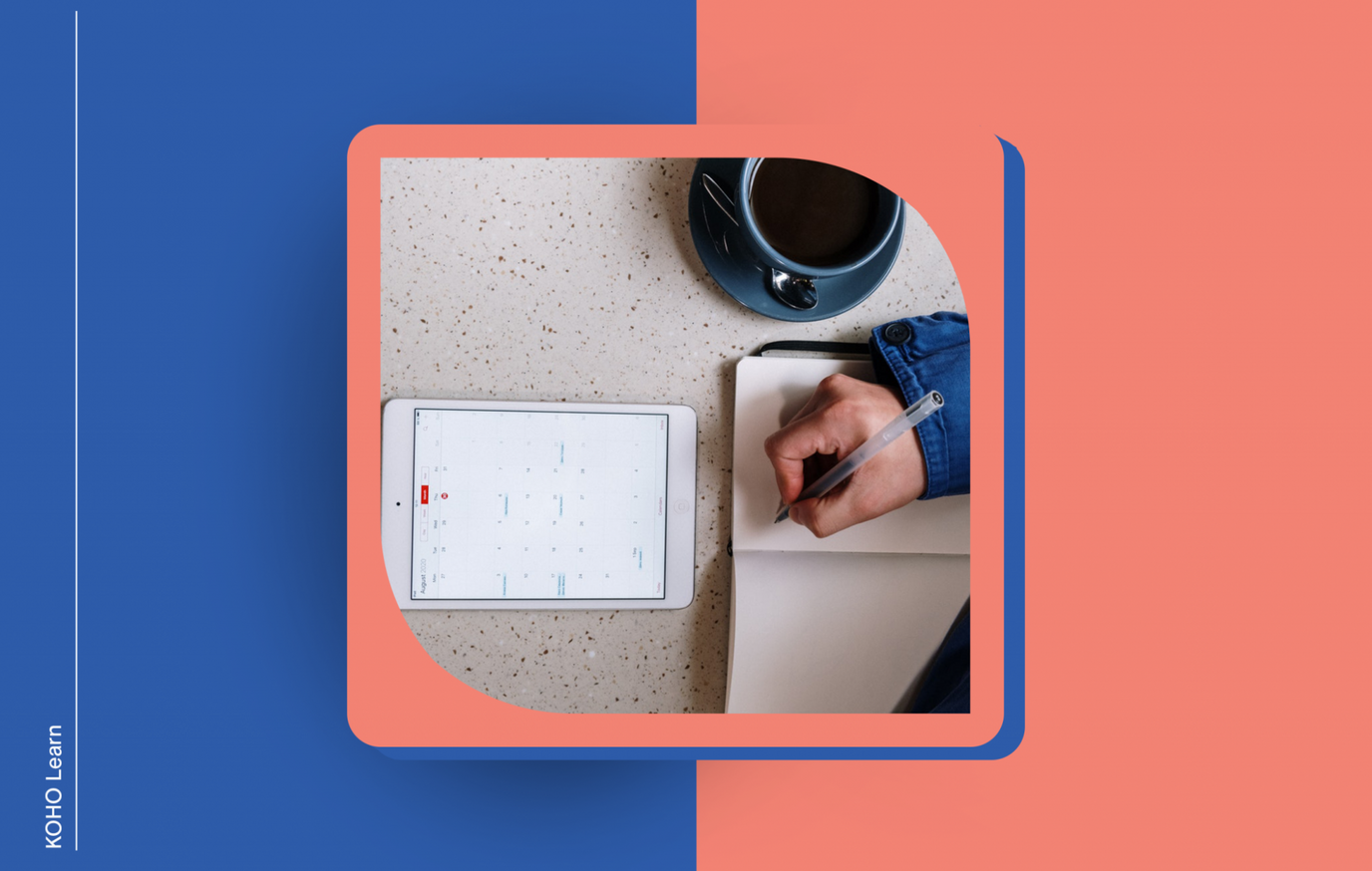
Rounding it up
The key to weathering an economic downturn is to have a budget that not only works but is repeatable, accessible, and well established.
Altering your budget to include additional savings, trimmed expenses, and debt reduction (payoff) can help keep you moving forward.
Economics is cyclical and better times are ahead; stay positive.
If you’ve been reading the KOHO.ca blog for a while, I hope you’ve seen one overarching theme throughout each and every one of the articles. It’s something that has been mentioned so many times that the word may start to lose meaning: budgeting.
We mention it so frequently because it is the one tool–more than credit cards, bank accounts, payment cards, loans and mortgages–that you can use to positively change your financial life. Understanding exactly where you stand financially is one of the most important things you can do for yourself.
Budgets, however, shouldn’t be rigid things. Yes, you can stick with some principals and we certainly wouldn’t want you to toss out that Excel spreadsheet you’re using.
Keep your columns, friends! But, your budget should be able to withstand a bit of tinkering here and there because economic conditions change, as you’ve no doubt seen. Read on to learn more about how you should change your budget during an economic downturn.
Budgeting Basics
Before we dive into how you can change your budget in response to an economic downturn, we should probably cover some budget basics first. There are a few universal budgeting principles that should be used, regardless of the type of budget you have in place.
Best ways
There are an infinite number of apps, websites, and budgeting systems out there. You can use everything from a simple pen and paper model to a complex, API-linked website that automatically updates with your spending. KOHO offers a monthly budget template that we cite in our blog posts quite a bit–and it just so happens to be a crowd favorite.
Nevertheless, it doesn’t really matter what you use as long as it works. You also don’t want to waste all your time setting up an intricate system on a website. If it won’t be easy to use day-in and day-out, you won’t use it to budget. If you’re the pen and paper type, making two columns labeled “Ins” and “Outs” could be exactly what you need.
Ins and Outs
Before you can get going with a budget, you need to understand what a budget entails. In other words, how much do you bring in from your paycheque and how much do you send out in expenses each month?
This includes any source of income you have, including paycheques from jobs, cash from side hustles, and alimony or child support if you receive such payments. We’re also talking about the actual dollars that get deposited into your account.
Retirement savings and other deductions that occur before you get your cheque aren’t included. When it comes to expenses, you’ll want to include the broader amounts you pay out each month. We’ll dive into more specifics shortly, but for now take a look at all your expenses.
Be sure to also include items that you pay annually or bi-annually. These can be confusing to account for since they tend to require larger amounts due at a time. You can split them out monthly or keep them in the month in which they come due.
Expenses
Once you have an idea of what’s coming in and how much you’re paying out, drill down into those expenses a bit more. Here, you’ll want to categorize certain expenses as being fixed, fluid, or fun. Fixed expenses are those that you absolutely cannot change. These include your rent or mortgage, your utility bills, insurance of all types, and any outstanding debt payments you may have, like student loans or car payments. These bills don’t change and can be budgeted the same way month after month.
Fluid expenses are those that you still need to pay but are flexible. Here, we’re talking about certain types of bills like mobile phones and internet. These expenses may be more fixed for you than others, but you can, on occasion, cut your costs by changing plans or moving to a prepaid model. Additionally, transportation should be considered fluid.
Yes, you may need gas to get to work, but if you really need to cut costs, you may be able to reduce the amount of times you travel to the office or how you get there (e.g.,. public transit). You’ll also want to include groceries (you may have to skip out on your artisan cheeses for a few months) and your savings. Now, there is a very good argument to be made that your savings account deposit really should be a fixed expense, but you can slide it around if need be.
Finally, fun expenses are just that: fun. This is the cash you spend to go out to eat, visit fun places, or do things with friends. These experiences, while important, are 100% optional and can be cut from your budget if things really go wrong.
Repeatable
Most importantly, your budget has to be something that you are able to understand and replicate over and over again, month after month. It should be used consistently, no matter if you’re writing it down with pen and paper, or using a complex website and its accompanying app, you have to use it.
The economy is turning…
So you’ve got your budget and you’re working it, saving money, and tracking your expenses. What alterations do you need to make so you can successfully weather the recessionary storm that is headed our way? There are certainly a few that can make your financial life a little bit smoother.
Pay off debt
Recessions are uncertain. Because of the rapid economic changes, businesses may choose to cut staff or hours, putting your position in question. Additionally, in this recession, rates are rising.
If you’re having trouble paying off high interest debt, consider consolidating into a product with a lower rate. This could be a home equity loan, if you own your home, or simply a personal loan. These do come with higher-than-normal interest rates, but they can be far better than credit card interest rates. They also have the added benefit of being fixed, meaning you can plan far better.
Redouble savings
In uncertain times, you want to ensure that you have extra runway in case the unexpected happens. You can do this by ensuring you have a strong savings account, along with a firm plan for depositing money into your account, and a robust emergency fund. Experts recommend having six months of your expenses socked away–this seems like a lot, but you’ll be grateful you set it up should things hit the fan.
Examine spending
Take a very close look at your spending and see if there are any ways you can trim. For example, do you really need Netflix, HBO, Hulu and Disney+? Maybe pick a favorite or two and drop the others. You may also have to consider cutting back on some of your spending money. Additionally, take a close look at exactly what you’re purchasing. In a recession, consider replacing some of your common purchases with store brands that are cheaper.
View money as time
This is a slightly more ephemeral way of changing your budget during a recession, but if you consider your money as time worked, you’ll have a better idea of what you’re spending and adjust accordingly. Let’s say you make $10 per hour and are planning to purchase that $200 video game system you’ve wanted. That’s 20 hours of work (if you don’t count taxes at all!). The question is, are you prepared to give 20 hours of work for that new video game system? Maybe, but at least you’ll have a new way of thinking about the expenditure.
Supplement
There has never been a better time for a side gig. There are loads of different websites and forums that cater to matching up folks that need a bit of work done with freelancers. Best of all, there are freelancing opportunities for just about everything, from writing to data visualization. The only thing you’ll need to watch out for here is taxes. If you are a freelancer, the company or individual you’re working for is likely not taking out the same taxes that a ‘normal’ employer would. Make sure you withhold enough of your earnings to pay taxes at the end of the year.
Reduce, Reuse, Recycle
Whether it’s second hand shops or local buy nothing groups, there are loads of options for individuals to get low or no-cost items that they may need. Looking for a new frying pan? There is almost certainly someone giving one away nearby. If there isn’t, check out local second hand and charity shops.
I’m really struggling
If you’re really having a hard time making ends meet, the Government of Canada has many different programs available. These include benefits for children and families, rent and mortgage assistance programs, and various credits and rebates for food. Learn more about your options by visiting the income assistance area of the government’s website.
Conclusion
You absolutely should plan to alter your budget as the recession gets underway. Recessions bring uncertainty to your situation. They also cause rising interest rates, making money more expensive. This time around, products are also expensive due to inflation, putting an additional strain on your budget. The most important thing you can do is work that budget and remember that the economy is cyclical.

About the author
Dan is a runner and writer living in the Washington, D.C. area, where he currently works for a financial services trade association as the Communications Director.
Read more about this author